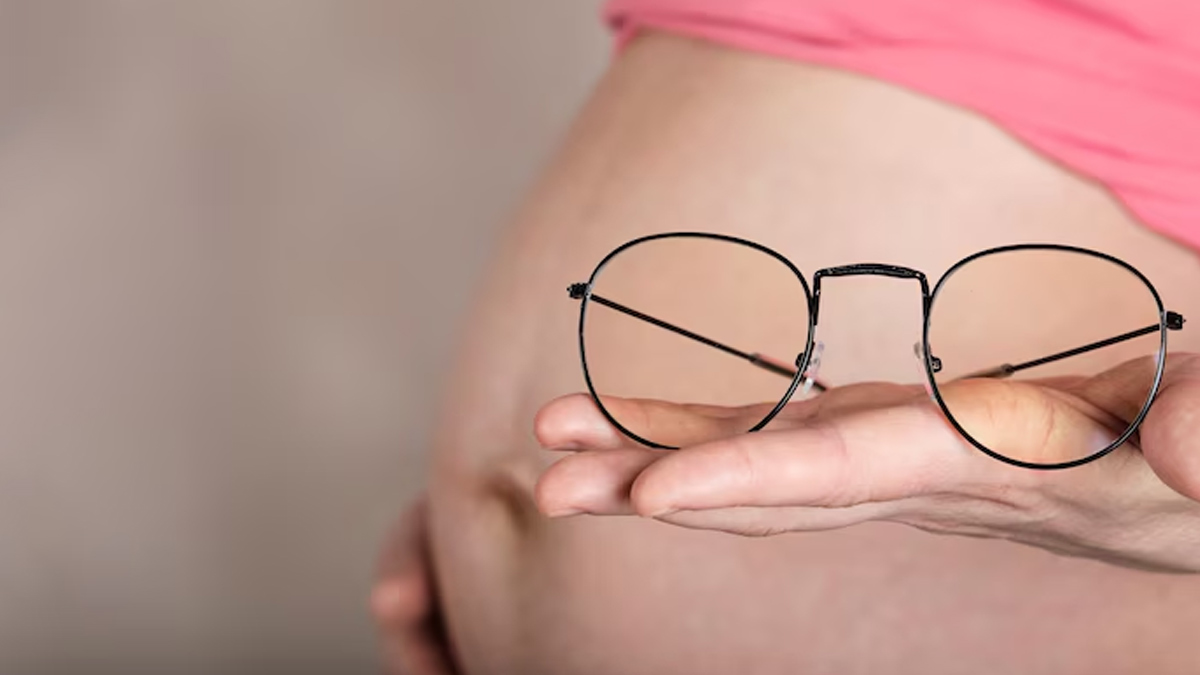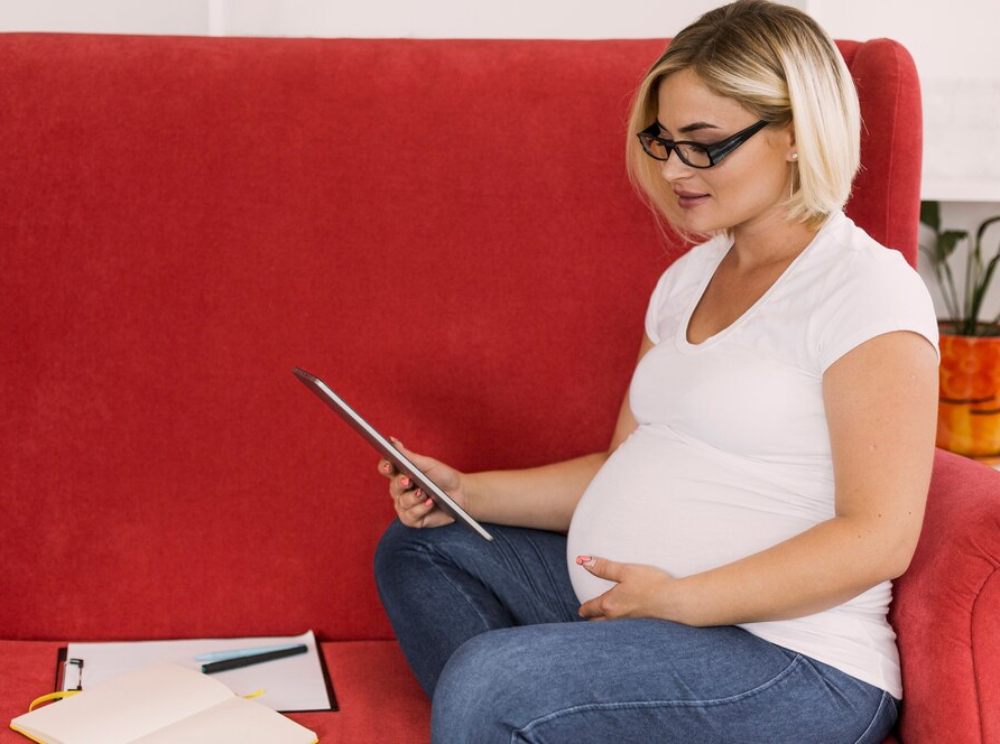
Pregnancy is a rollercoaster of physical, hormonal, and emotional changes, introducing expecting mothers to a range of new experiences. But did you know that some women can also experience vision changes during pregnancy?
Table of Content:-
Speaking with the OnlyMyHealth team, Dr Aditi Sapovadia, Paediatric Ophthalmologist, Squint and Cataract Consultant at Netradeep Maxivision Eye Hospital, Rajkot, explains the link and shares ways to manage the situation if and when it arises.
Also Read: Maternal Health: How To Treat Under-Eye Dark Circles During Pregnancy
How Your Vision Changes During Pregnancy![]()
A review of studies published in the Journal of Current Ophthalmology found that many pregnant women experience both normal and abnormal eye conditions. These changes were attributed to hormonal shifts, immune system changes, and other factors related to pregnancy.
According to Dr Sapovadia, pregnancy-related vision changes can occur due to hormonal, metabolic, and fluid balance shifts in the body.
She explains that higher levels of hormones like oestrogen and progesterone can affect the eyes by causing fluid retention, which alters the shape of the cornea and impacts vision. These hormones can also contribute to dryness and increased sensitivity in the eyes.
She further adds that vision changes may also be related to other pregnancy conditions like gestational diabetes or preeclampsia, which can lead to more serious eye complications.
In fact, the above-mentioned study noted that preeclampsia, a condition characterised by high blood pressure and protein in the urine, occurs in about 5% of pregnant women, and ocular complications have been reported in one-third of these patients.
Common Vision Problems During Pregnancy![]()
Some of the most common vision changes during pregnancy include:
- Blurry vision: Hormonal changes can alter the shape of the cornea, leading to blurriness.
- Dry eyes: A decrease in tear production due to hormonal fluctuations can result in dry, irritated eyes.
- Increased light sensitivity: Some pregnant women experience heightened sensitivity to light.
- Floaters or flashes: These can sometimes appear and should be reported to a doctor if persistent.
- Changes in existing prescriptions: Contact lens or glasses prescriptions may feel less effective.
Also Read: Eye Health Is Often Ignored, Here’s How You Can Take Care Of Your Eye
When Should Pregnant Women Visit A Doctor?
Dr Sapovadia says, “Vision changes during pregnancy are mostly temporary and often resolve after childbirth or when breastfeeding ends.”
“However, if underlying conditions like gestational diabetes or preeclampsia are involved, vision changes may require medical intervention and monitoring,” she advises.
A pregnant woman should see an eye specialist if she experiences:
- Sudden or severe blurriness
- Flashes of light or floaters
- Sudden loss of vision in one or both eyes
- Severe eye pain
- Persistent headaches with visual disturbances
How To Safely Manage Vision Changes During Pregnancy![]()
If you develop eye problems during pregnancy, here are some ways to manage the condition safely:
- Use artificial tears for dry eyes, which are safe during pregnancy.
- Avoid new prescription changes for glasses or contact lenses until after pregnancy, unless necessary.
- Wear sunglasses to reduce light sensitivity.
- Stay hydrated to maintain healthy tear production.
- Follow a balanced diet rich in vitamins A and E, which support eye health.
- For persistent or severe issues, consult an eye specialist for tailored advice.
Conclusion
It is important to address any health issue experienced during pregnancy. While vision changes are not very common, they may still occur due to various reasons. Consult your doctor if you experience any eye-related issues and seek proper professional advice.
Also watch this video
How we keep this article up to date:
We work with experts and keep a close eye on the latest in health and wellness. Whenever there is a new research or helpful information, we update our articles with accurate and useful advice.
Current Version


